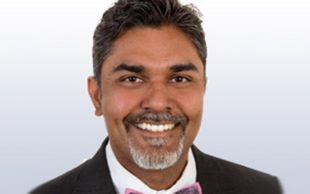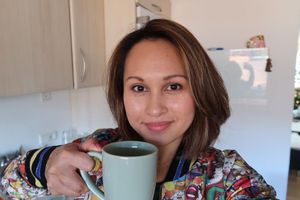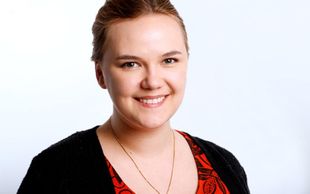Human biology in a digital frontier
by Bala Kamallakaran
Even still, we know so little about the human body, don’t we? It is important to understand why that is so, given all of our advancements as a human race. We, as consumers and patients, have outsourced the responsibility of understanding our bodies to our doctors and healthcare professionals. As much as I believe we are in good hands, we have tools and technology at our disposal that should give us more actionable data to empower us in our own health.
By understanding how each of our bodies works, using mobile phones or wearables like Fitbit, we can dramatically lower the cost of healthcare without reducing the level of service through our health systems.
Death of my Father
September 19, 2011. That was the day I woke up. My father, who had undergone a quadruple bypass, succumbed to complications resulting from the surgery. It was sudden, shocking. My father was a teetotaler, did not smoke and was quite disciplined with his lifestyle. I could not reconcile his death. He had a heart attack because he had diabetes and cardiovascular disease. I immediately got myself tested. I had previously struggled with prediabetes. To my dismay, my cardiologist informed that I too had plaque build up in my arteries and veins and my preiabetes had returned. I was heading down the same path.
I could not understand why my body was behaving the way it did. I run. I even run marathons occasionally. I eat healthy foods. I actively manage stress through meditation and yoga. Now I was on statins.
I needed to understand myself more. I needed to see exactly how my body worked. Eventually, my doctor pointed me to research papers on genetic models that showed some people are genetically predispositioned to diabetic conditions. My genes were now my enemy.
Startup Thinking to the rescue
The advantage of working with startup founders and entrepreneurs is that they rarely accept the first answer or quit at the first hurdle.
I found through online research that in Southeast Asia a gene mutation was discovered that impacts the absorption of certain food types, leading to a metabolic condition. I have this mutation. My father likely did too.
I began to catalogue and measure my blood glucose levels one hour after every meal to see which food items were causing my blood glucose level spikes. I stopped eating foods, such as sugar, that negatively impacted my blood glucose levels. Today I no longer have to take the statins.
Startup Iceland
This lifestyle correction would not have happened so quickly, if at all, had I not had access to critical research around these conditions and tools to track and support lifestyle changes. The digital economy and breadth of the internet enables all of us to participate in our own well being. It reduces time-to-discovery and introduces factors that may otherwise go undiscovered. Internet-enabled devices and mobile technologies, as well as artificial intelligence are greatly disrupting healthcare and at the same time greatly reducing its costs, empowered through prevention.
Biotechnology and digital health innovations are giving us more transparency into the depths of human biology and our own health. At the same time, new regulations such as Europe’s General Data Protection Regulation will influence responsible storage, access and accountability for use of our private data. As these two themes intersect, we decided to bring together entrepreneurs, investors and influencers in Health and Personal Data to Startup Iceland this year to discuss the impact of GDPR on business, consumers and international economies.
We’re looking forward to leading thought-provoking discussions on how health and healthcare are evolving through technology and the digitization of personal information. Experts like Dr. Tryggvi Thorgeirsson, CEO and co-founder of SidekickHealth, Sandra Mjöll Jonsdóttir-Buch, co-founder of Platome Biotechnology, Ida Tin, founder of internationally acclaimed period and ovulation-tracker Clue app, Julian Ranger, founder of Digi.me, Brad Burnham, Managing Partner of Union Square Ventures and many others will share their perspectives from various sides of the health and digital information industries.







/frimg/1/57/93/1579337.jpg)
/frimg/1/57/94/1579405.jpg)


